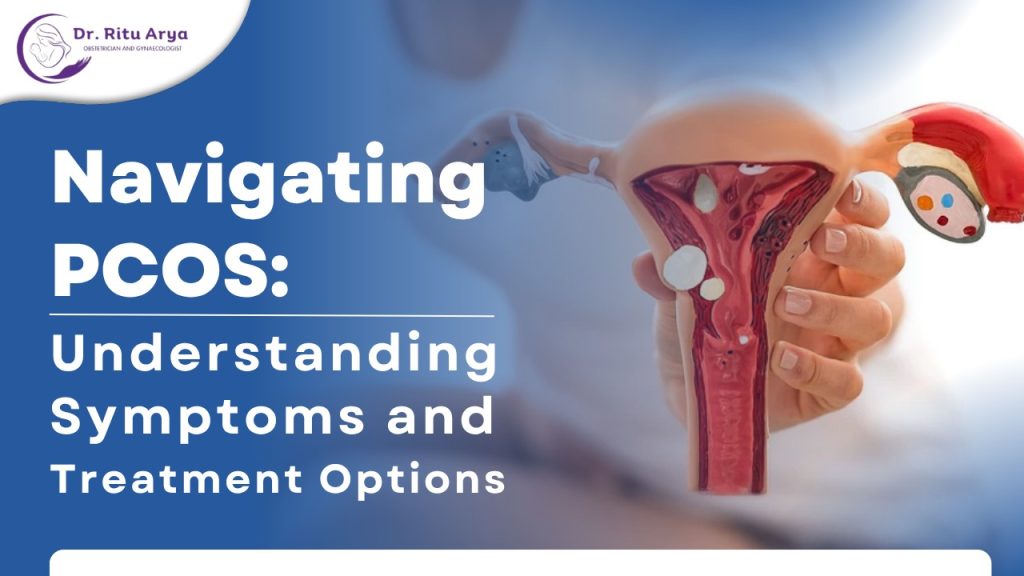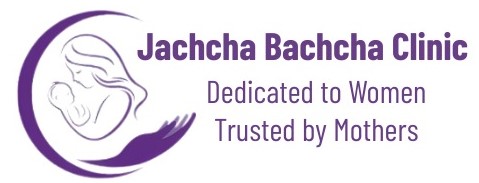
Polycystic Ovary Syndrome (PCOS) is a common hormonal disorder that affects many women around the world. Characterized by a range of symptoms, it can often lead to complications if left untreated. In this blog, we will explore what PCOS is, its symptoms, diagnosis, and various treatment options available, helping women navigate this condition with knowledge and confidence.
What is PCOS?
PCOS is a hormonal disorder that affects women’s ovaries, leading to various symptoms related to hormonal imbalances. The name “polycystic” comes from the many small cysts that can form on the ovaries. However, not all women with PCOS will have these cysts. The condition can affect women of reproductive age and can lead to complications such as infertility, diabetes, and cardiovascular diseases if not managed properly.
Causes of PCOS
The exact cause of PCOS is not fully understood, but several factors may contribute to its development:
- Hormonal Imbalance: Women with PCOS often have higher levels of androgens (male hormones) and insulin, which can disrupt the normal ovulation process.
- Genetic Factors: PCOS can run in families, suggesting a genetic component to the disorder.
- Insulin Resistance: Many women with PCOS have insulin resistance, where the body’s cells do not respond effectively to insulin, leading to higher insulin levels and weight gain.
Symptoms of PCOS
PCOS symptoms can vary from person to person, and they may include:
- Irregular Menstrual Cycles: Many women with PCOS experience infrequent or prolonged menstrual cycles.
- Excess Androgen Levels: This can lead to symptoms such as acne, excessive hair growth (hirsutism), and thinning hair on the scalp.
- Polycystic Ovaries: Some women may have enlarged ovaries with numerous small cysts visible on ultrasound.
- Weight Gain: Many women with PCOS struggle with weight gain or obesity, which can exacerbate other symptoms.
- Infertility: PCOS is one of the leading causes of infertility in women due to irregular ovulation.
Additional Symptoms
Other symptoms that may accompany PCOS include:
- Mood swings and depression
- Sleep apnea
- Skin tags
- Dark patches of skin (acanthosis nigricans)
Diagnosis of PCOS
Diagnosing PCOS involves a combination of medical history, physical examination, and various tests:
- Medical History: A healthcare provider will ask about menstrual cycles, weight changes, and family history of PCOS.
- Physical Examination: This may include checking for signs of excess hair growth, acne, and weight.
- Blood Tests: Hormonal levels, including androgens and insulin, may be measured to assess for imbalances.
- Ultrasound: A pelvic ultrasound may be performed to check for the presence of cysts on the ovaries.
To be diagnosed with PCOS, a woman typically needs to meet at least two of the following criteria (known as the Rotterdam criteria):
- Irregular or absent ovulation
- High levels of androgens
- Polycystic ovaries on ultrasound
Treatment Options for PCOS
While there is no cure for PCOS, various treatment options can help manage symptoms and reduce the risk of complications. Treatment plans are often individualized based on the patient’s symptoms, age, and reproductive goals.
Lifestyle Changes
- Diet: A balanced diet rich in whole foods, such as fruits, vegetables, lean proteins, and whole grains, can help manage weight and insulin levels. Reducing sugar and refined carbohydrates can also be beneficial.
- Exercise: Regular physical activity can help manage weight, improve insulin sensitivity, and reduce the risk of diabetes. Aim for at least 150 minutes of moderate-intensity exercise each week.
- Weight Management: Losing even a small amount of weight (5-10% of body weight) can help regulate menstrual cycles and improve symptoms.
Medications
- Hormonal Birth Control: Birth control pills can help regulate menstrual cycles, reduce excess hair growth, and improve acne. They work by balancing hormone levels.
- Metformin: This medication is commonly used to treat insulin resistance in women with PCOS. It can help regulate menstrual cycles and support weight loss.
- Anti-Androgens: Medications like spironolactone can help reduce hair growth and acne by blocking the effects of androgens.
Fertility Treatments
For women looking to conceive, fertility treatments may be necessary. Options include:
- Ovulation Induction: Medications such as clomiphene citrate or letrozole can stimulate ovulation.
- In Vitro Fertilization (IVF): If other treatments are unsuccessful, IVF may be an option.
Managing Emotional Well-being
Living with PCOS can take a toll on mental health. Many women report feelings of anxiety, depression, and low self-esteem. It’s important to seek support through counseling, support groups, or online communities. Practicing stress-reduction techniques such as yoga, meditation, and mindfulness can also help.
Conclusion
PCOS is a complex condition that affects many women, but with the right knowledge and support, it can be effectively managed. Understanding the symptoms, obtaining a proper diagnosis, and exploring treatment options are vital steps in reclaiming control over one’s health. If you suspect you may have PCOS or are struggling with its symptoms, consult with a healthcare professional, such as Dr. Ritu Arya, who can provide personalized care and guidance tailored to your unique needs. Remember, knowledge is power, and navigating PCOS is possible with the right tools and support.
